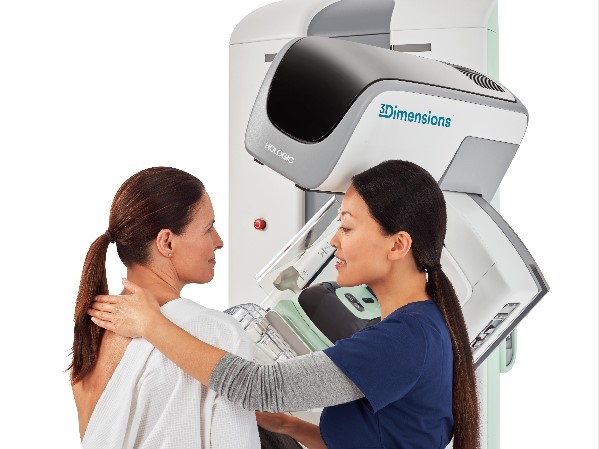KUALA LUMPUR, Sept 27 — The government, under the 12th Malaysia Plan, failed to outline significant ways to tackle non-communicable diseases (NCDs) that were already a crisis even before the Covid-19 pandemic.
Instead, the government’s five-year plan from 2021 to 2025 merely focused on expanding awareness programmes and cancer screening services — without mentioning increased treatment for patients with chronic diseases who got sicker during the pandemic, as screenings, follow-up appointments, and surgeries were delayed for more than a year across public hospitals.
Health Minister Khairy Jamaluddin revealed last week that a whopping 57,000 over non-Covid procedures are currently backlogged across public hospitals.
“Efforts will be intensified to combat NCDs, focusing on cancer, cardiovascular diseases, diabetes mellitus and mental illness,” according to the 12MP that was tabled by Prime Minister Ismail Sabri Yaakob in Parliament today.
According to the National Health and Morbidity Survey (NHMS) 2019 by the Ministry of Health (MOH), about 8.1 per cent of the adult population in Malaysia, or 1.7 million people, have all three risk factors for diabetes, hypertension, and high cholesterol. Diabetes prevalence among adults increased to 18.3 per cent in 2019 from 13.4 per cent in 2015.
The 12MP also stated that screening and diagnosis services for colorectal, oral, breast and cervical cancers will be strengthened by expanding the number of mobile health clinics.
It is to be noted that the utilisation rate of cancer screening programmes among the public is unacceptably low in Malaysia, even with existing facilities that provide screenings for free.
For instance, only 12.9 percent of women in Malaysia have a pap smear once in their life, (usually after giving birth) although cervical cancer is the third most common cancer in women in the country.
That is in contrast to the World Health Organization’s (WHO) target, which is 70 per cent HPV screening coverage for women aged 35 to 45, and the test is recommended every three years.
The 12MP said: “In addition, cancer awareness programmes will be conducted at more health clinics and hospitals, targeting high-risk groups for early detection.”
Last year, Health director-general Dr Noor Hisham Abdullah mentioned that late cancer detection increased to 63.7 per cent between 2012 and 2016, compared to 58.7 per cent from 2007 until 2011.
He also highlighted that late cancer detection will reduce survival rates, citing the October 2018 Malaysian Study on Cancer Survival.
This clearly shows that existing cancer screening programmes are not being utilised well by Malaysians. So, merely increasing screening programmes may pose a challenge to increase overall screening rates without additional intervention programmes.
On top of it all, the prolonged Covid-19 epidemic in the country caused deferrals of cancer and elective surgeries, according to medical experts, while undiagnosed cancer cases suffered delayed access to biopsies and diagnostic scans in Malaysia. Late diagnosis of cancer can worsen outcomes and survival.
Intervention programmes at schools, workplaces, and also the community will be increased under the 12MP to address obesity — a common disease found in almost one-fifth of Malaysian adults.
“The scope of sugar tax will also be expanded to include premix drink products.”
Besides that, nutrition advocacy activities for women of reproductive age and quit-smoking programmes will also be strengthened across public and private sectors.
At the same time, the five-year plan specified the government’s intentions to formulate a national strategic plan to address mental health issues in Malaysia.
“Campaigns and services related to mental health will be enhanced to educate and increase awareness through concerted efforts with related agencies, volunteers, community-based organisations (CBOs) and CSOs.
“In addition, the national suicide registry will be established to assist in formulating effective measures in addressing the rising suicide rate.”
The NHMS 2019 revealed that close to half a million people in Malaysia experienced depression, while 424,000 children had mental health problems.
At the same time, Malaysia reported 468 suicides between January and May this year, compared to 631 in 2020, and 609 in 2019 while the country registered a surge of people who requested for mental health assistance during the Covid-19 pandemic.
The 12MP also included health programmes for elderly people as Malaysia is projected to be an aged nation by 2030. The five-year plan states domiciliary health care will incorporate oral health care services to prevent and treat oral cancer among senior citizens.
According to the 12MP, the government will ensure private sector compliance to legislation regulating private aged health care facilities and care centres, but did not outline plans to increase aged care services in the public sector.
“Awareness programmes on healthy ageing and eating will be strengthened, including at the Pusat Aktiviti Warga Emas to maintain good health among older persons,” said the 12MP.
A research study conducted by University Putra Malaysia stated that Malaysia had 2,248,600 people aged 60 and above, with a projection of an increase to 3.3 million in 2020. That is approximately 11 per cent of the total population.
The World Health Organization (WHO) classifies a nation with a proportion of 7 per cent or higher of people aged 65 years and older as an “ageing society”.








